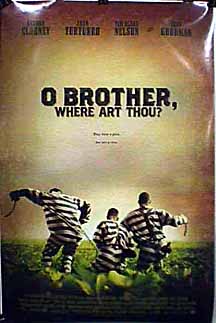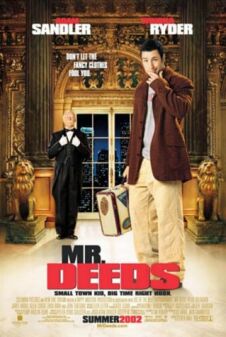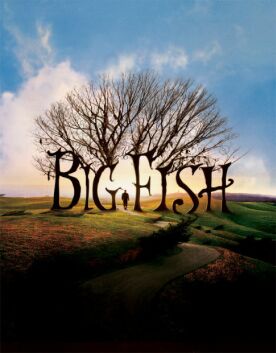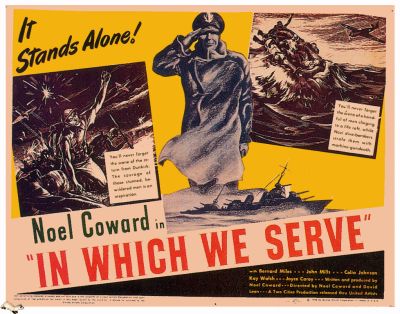O Brother, Where Art Thou?
Over the opening credits of the Coen
brothers’ new movie, O Brother,
Where Art Thou? we hear Harry McLintock singing
“The Big Rock Candy
Mountain,” a song which (I seem to
remember) was once an anthem of the revolutionary International Workers of the
World or
“Wobblies”
and which enjoyed a renewed vogue during the Depression of the 1930s. The idea,
like that of “Pie in the
Sky,” was to ridicule
religion’s promise of Heaven which, in
good Marxist fashion, the singer considered to be a fabrication of the ruling
classes designed to keep the workers content with their miserable lot on earth.
Like so much of the revolutionary iconography of the last century, this bitter
and sardonic ditty is now, the movie tells us, a fashion statement. Poverty,
prisons, chain gangs, bank robberies, political
corruption—all familiar images of the
South in the 1930s—are all now, like the Mississippi blues, merely chic
materials for a designer movie.
Nor do the ironies stop there. The title is taken from the film that the
socially conscience-stricken director played by Joel McCrea in Preston
Sturges’s
Sullivan’s
Travels (1941) wants to make—until
he actually meets a few of the downtrodden objects of his solicitude and decides
that the best thing he can do for them is to make escapist comedies that will
help them forget their troubles. O Brother, Where Art Thou? is thus,
almost by definition, a movie that should never have been made. The
Coens’ little joke is to have made it
as precisely the sort of escapist fantasy that
Sturges’s hero abandoned it in favor
of. Only now, in the midst of national wealth that would have been simply
unimaginable to the hard-up ‘30s,
what we escape to is not the Big Rock Candy Mountain but Mississippi during the
Depression, rendered safe—indeed,
mythical and archetypal —by a plot
based on Homer’s Odyssey.
If you haven’t already been put off
by the preceding description, you should probably go to this movie, for (as
always with the Coens’ pictures) there
is much to enjoy in it. The story,
it’s true is too chaotic and silly to
engage us. Though derived from Homeric epic, the film is far from being a
reverent (or even a respectful) treatment of same. Part of the problem is that a
106-minute movie is just not big enough for epic, so that the little
stopovers with the Sirens (three improbably pretty girls washing their laundry
in a stream, who are thus conflated with Nausicaa as well as Circe, since one of
our heroes is apparently turned into a toad) or the Cyclops (John Goodman as a
one-eyed Bible salesman) are made to seem even sillier than they would otherwise
be. But the Coens’ basic lack of
narrative seriousness makes epic impossible anyway. The plot is really just the
thread on which a series of songs and jokes are strung like beads.
What makes the film worth seeing is that the songs and jokes are (mostly)
very good ones. The former, under the supervision of T-Bone Burnett, have the
authentic feel of the ur-country music of the 1930s and a great deal of
poignancy as a result. The latter have the characteristic brilliance of a Coen
brothers script. Some of the best jokes come out of the election campaign
between the incumbent governor, Menelaus,
“Pappy,”
O’Daniel (Charles Durning) and the
reform candidate, Homer Stokes (Wayne Duvall), who tells a rally:
“The choice, she’s clear: Pappy
O’Dan’l, slave of the interests; Homer Stokes, servant of the little
man,” And then he turns to a midget
wielding his trademark broom and says:
“Ain’t
that right, little man?”
“He ain’t
lyin’!”
says the midget to wild applause.
Meanwhile, Pappy’s idiot son says:
“People like that re-form,
Daddy. Maybe we oughtta get us
some.”
In addition a word should be said about the excellent performances of George
Clooney, an actor I have always found it difficult to like, as the hero, Ulysses
Everett McGill, and his two sidekicks, whose counterparts in the original
Odyssey you may, like me, have forgotten, Pete Hogwallop (John Turturro)
and Delmar O’Donnel (Tim Blake
Nelson). None of them has a part with any real substance to it, but each does as
much as it is possible to do with a caricature. Given that their job is merely
to represent Dumb, Dumber and Dumbest after what is rapidly becoming a too
well-worn movie convention (perhaps because the stupid are among the few human
types it is still safe to laugh at), each in his own way manages to suggest
personality and even sweetness lurking beneath the veneer of idiocy.
But generally speaking the film is a great disappointment. Like the
Coens’ last, The Big Lebowski,
or their earlier Hudsucker Proxy, it is a brilliant movie with no purpose
at all, apart from calling attention to its own brilliance. And without anything
much in the way of a point (not to mention something that borders on contempt
for religion), the patronizing attitude of the filmmakers towards the idiot
yokels whose doings they chronicle becomes offensive in a way that it never
quite did (for me) in the morally serious Fargo. The small-town
Minnesotans in that movie may have talked funny, but they were obviously meant
to be seen as good and decent people whose snowbound community acted like white
blood cells to overwhelm and neutralize the moral toxins introduced into their
midst. The rural Mississippians in O Brother are only good for laughing
at.
Discover more from James Bowman
Subscribe to get the latest posts to your email.






